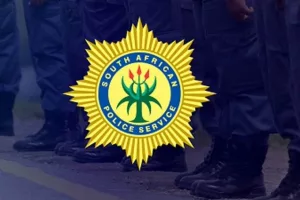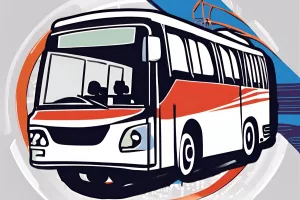The Western Cape High Court has approved the eviction of illegal settlements in Cape Town’s CBD, including Buitengracht Street and Foregate Square. The City plans to invest over R220 million to expand and manage its Safe Space transitional shelters beyond the existing 770 beds across the CBD, Bellville, and Durbanville facilities as part of its continuous battle against homelessness. Safe Spaces provide transitional accommodation and social support initiatives to help individuals transition off the streets.
NATJOINTS is playing a big role in ensuring the safety of citizens during South Africa’s Presidential Inauguration. They have implemented measures like traffic management and crowd control to make sure the event goes smoothly. The security forces are working hard to keep everyone safe, but they also ask the public to participate responsibly. Overall, the inauguration is a big moment for South Africa and NATJOINTS is committed to making sure everything goes according to plan.
As winter approaches Cape Town, homeless shelters are preparing for an expected increase in demand for warmth and shelter from the bitter cold. Haven, a leading charity, is creating approximately 100 additional sleeping spaces to meet the surge in demand. Homelessness is a persistent issue in Cape Town with estimates suggesting a homeless population of up to 20,000 in the area alone, but the combined efforts of charities, institutions, and the government offer hope for the vulnerable during the toughest season.
Pedestrian safety in urban areas is a pressing issue, with an increase in fatalities highlighting the need for stricter compliance with traffic regulations and better safety measures. Recent tragedies, including the deaths of a fouryearold girl and a 25yearold woman, demonstrate the severe impact of these incidents on wider society. To address the issue, the city plans to reinitiate conversations with the Western Cape Government and Sanral to improve pedestrian safety along highways, while law enforcement agencies continue to enforce traffic regulations and make arrests for violations.
Over the past ten years, South Africa’s academic landscape has undergone a remarkable transformation as rising universities like the University of Johannesburg and Stellenbosch University challenge traditional academic leaders. This shift highlights a significant change in the country’s academic panorama, with universities previously thought of as underdogs making significant strides forward. These changes are reflected in global rankings, with several South African universities making a name for themselves on the international stage. Looking forward, the future of South African academia is bright, with a dynamic and evolving environment anticipated.
Ascending City Transit: Traffic Regulation Revisions along AZ Berman Drive for MyCiTi Project
The MyCiTi Project is making traffic regulation revisions along AZ Berman Drive for the subsequent phase of the bus services, lasting for about nine months. The modifications include surrendering one northbound lane during peak hours to make way for a third rightturning lane heading south at the intersection of AZ Berman and Highlands Drive. Temporary poles and a pedestrian crossing with signalized traffic lights will be in place for convenience and safety. This is part of the city’s investment towards the future of its transportation infrastructure, providing safe and costeffective public transport to alleviate traffic congestion and uplift nearby regions.
Hiram Kasten, best known for his role as Michael on Seinfeld, passed away at 71 after a sevenyear battle with prostate cancer. Kasten’s legacy as a comedic genius started in New York’s comedy clubs, where he polished his skills and became a respected figure in the industry. He also appeared in other popular TV shows like Mad About You and Everybody Loves Raymond, showcasing his versatile comedic talent. Despite his booming career, Kasten valued his roles as a husband and father above all else. His legacy will continue to inspire aspiring comedians, showcasing the transformative power of laughter.
A fishing trip turned tragic as two fishermen lost their lives and one suffered from hypothermia and nonfatal drowning in Bantry Bay, Cape Town. Despite the efforts of paramedics, one angler couldn’t be revived, leaving the community in mourning. The incident highlights the risks of navigating unpredictable waters and serves as a poignant reminder of the perils of the sea.
South Africa’s Youth Day, celebrated on June 16th, pays tribute to the bravery and fortitude of young citizens in the country. It commemorates the Soweto Uprising of 1976, where black students protested against repressive educational laws. Today’s youth continue to draw inspiration from this event and are actively involved in social and political movements, advocating for change. The government has established legal frameworks and departments dedicated to empowering and uplifting the youth, aiming to create a more equitable society. South Africa believes in the potential of its youth as agents of social transformation, and aspires for a brighter and more just future.
National Youth Day in South Africa honors the brave youth who stood up against apartheid in 1976 and continues to celebrate the crucial role the youth plays in the country’s progress. The government is committed to empowering young individuals and transforming them into tomorrow’s leaders through initiatives targeting youth empowerment and job creation. The youth forms over twothirds of the population, making their involvement not simply desirable but essential for South Africa’s advancement, economic growth, and diminishing social inequalities.
“A New Era of Energy Stability in South Africa: 80 Days without Loadshedding and Counting”
South Africa’s energy sector is enjoying a remarkable period of stability, celebrating 80 days without power shortages. Eskom’s recovery approach has led to a significant decrease in unplanned power outages, now at a manageable 12,000MW. Eskom’s plan has been characterized by an insightful understanding of the country’s electricity demand trends, allowing for optimized power demand patterns. As Eskom continues on its journey of improvement, South Africa can look forward to experiencing many more days free from loadshedding.
Explore South Africa’s vibrant art scene through visits to the diverse and dynamic galleries of BKhz Gallery in Johannesburg, KZNSA Gallery in Durban, Christopher Moller Gallery in Cape Town, and Oliewenhuis Art Museum in Bloemfontein. These galleries showcase contemporary African art and foster meaningful conversations around social justice, identity, and belonging, while supporting emerging artists and preserving South Africa’s visual heritage. Each gallery offers a unique perspective on the country’s artistic landscape, blending tradition with modernity, and promoting inclusivity and cultural change.
South Africa witnessed a historic event with the inaugural session of the National Council of Provinces (NCOP) on June 15th, 2024. The NCOP comprises 54 representatives from all nine provinces, pledging to serve the South African population. Ms. Refilwe MtshweniTsipane from the Mpumalanga province was unanimously elected as Chairperson, while Mr. Kenneth Mmoiemang was elected as Chief Whip. The NCOP embodies the principles of inclusive and democratic governance, prioritizing provincial representation over personal political aspirations.
Get ready for a major upgrade in the city’s water supply system! From June 18th to 23rd, the Urban Water and Sanitation Department will be conducting maintenance strategies, which may result in low water pressure or no water. The plan includes tests and assessments, as well as the installation, repair, and replacement of pipes and valves. Stay informed and prepared by following @CityofCTAlerts on Twitter and storing enough water in sealed containers. Let’s work together to build a better and more efficient water management system for our city!
This article showcases five nonprofit organizations in Cape Town that support the city’s youth in various ways, including providing safety nets, therapy, counseling, recreational and spiritual growth, and more. These organizations, including the Cape Town Child Welfare Society and the Lavender Hill Sports and Recreation Foundation, play a vital role in protecting the youth from harmful street influences and enhancing their lives. As Youth Day approaches, these organizations symbolize the collective effort towards change, progress, and hope for a brighter future for Cape Town’s youth.
South African politics has shifted with the appointment of Thokozile Didiza as Speaker and Annelie Lotriet as Deputy Speaker of the National Assembly. Didiza has held several prominent roles in parliament, while Lotriet brings a wealth of experience as a member of the Democratic Alliance. Their election marks a new era in South African politics, with both women bringing expertise and academic credentials to their positions.
















